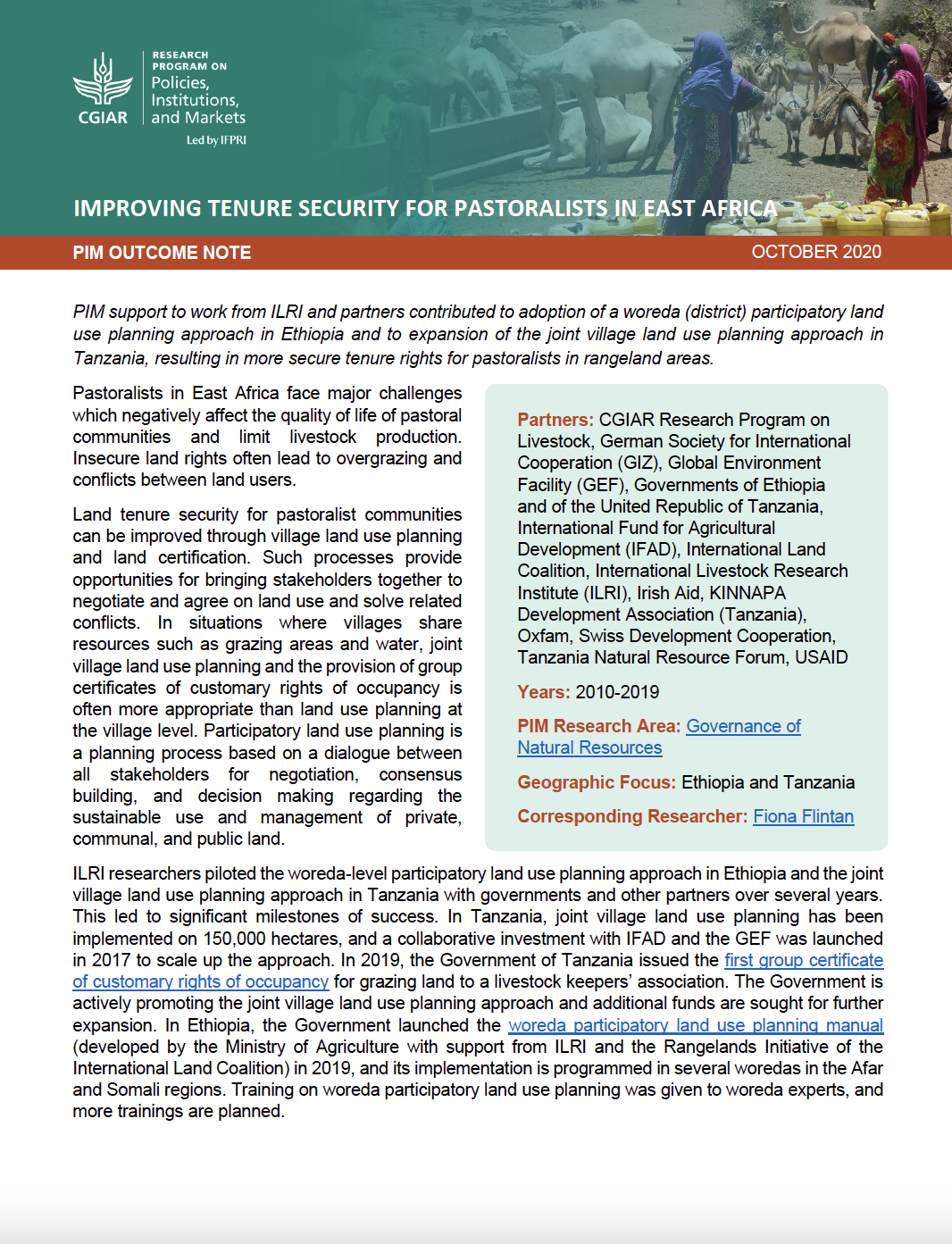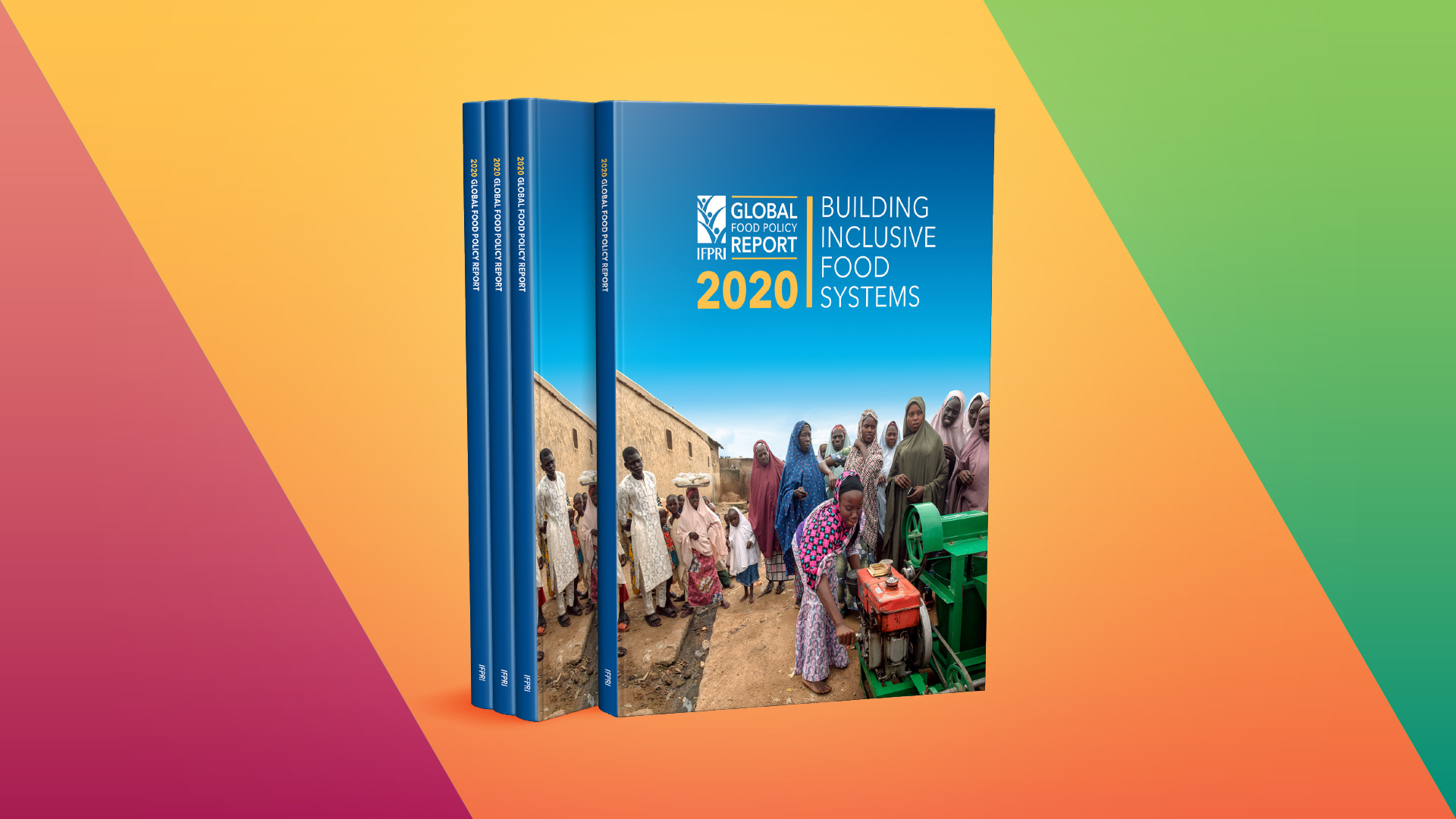Focal point
Location
About IFPRI
The International Food Policy Research Institute (IFPRI) provides research-based policy solutions to sustainably reduce poverty and end hunger and malnutrition in developing countries. Established in 1975, IFPRI currently has more than 500 employees working in over 50 countries. It is a research center of theCGIAR Consortium, a worldwide partnership engaged in agricultural research for development.
Vision and Mission
IFPRI’s vision is a world free of hunger and malnutrition. Its mission is to provide research-based policy solutions that sustainably reduce poverty and end hunger and malnutrition.
What We Do
Research at IFPRI focuses on six strategic areas:
- Ensuring Sustainable Food Production: IFPRI’s research analyzes options for policies, institutions, innovations, and technologies that can advance sustainable food production in a context of resource scarcity, threats to biodiversity, and climate change. READ MORE
- Promoting Healthy Food Systems: IFPRI examines how to improve diet quality and nutrition for the poor, focusing particularly on women and children, and works to create synergies among the three vital components of the food system: agriculture, health, and nutrition. READ MORE
- Improving Markets and Trade: IFPRI’s research focuses on strengthening markets and correcting market failures to enhance the benefits from market participation for small-scale farmers. READ MORE
- Transforming Agriculture: The aim of IFPRI’s research in this area is to improve development strategies to ensure broad-based rural growth and to accelerate the transformation from low-income, rural, agriculture-based economies to high-income, more urbanized, and industrial service-based ones. READ MORE
- Building Resilience: IFPRI’s research explores the causes and impacts of environmental, political, and economic shocks that can affect food security, nutrition, health, and well-being and evaluates interventions designed to enhance resilience at various levels. READ MORE
- Strengthening Institutions and Governance: IFPRI’s research on institutions centers on collective action in management of natural resources and farmer organizations. Its governance-focused research examines the political economy of agricultural policymaking, the degree of state capacity and political will required for achieving economic transformation, and the impacts of different governance arrangements.
Research on gender cuts across all six areas, because understanding the relationships between women and men can illuminate the pathway to sustainable and inclusive economic development.
IFPRI also leads two CGIAR Research Programs (CRPs): Policies, Institutions, and Markets (PIM) andAgriculture for Nutrition and Health (A4NH).
Beyond research, IFPRI’s work includes partnerships, communications, and capacity strengthening. The Institute collaborates with development implementers, public institutions, the private sector, farmers’ organizations, and other partners around the world.
Resources
Displaying 1 - 5 of 1521Tenure security: Why it matters
Collaborative international research on tenure dates back at least to the early 1960s when the Land Tenure Centre was established at the University of Wisconsin-Madison and conducted some studies in collaboration with CGIAR social scientists. CGIAR interest in tenure increased in the early 1990s when natural resource management was strengthened as a component of the CGIAR agenda and the Centers on forests, agroforestry, and water (CIFOR, ICRAF, and IWMI) entered the system.
2020 Global Food Policy Report: Building Inclusive Food Systems
FOOD SYSTEMS ARE EVOLVING QUICKLY TO MEET GROWING AND CHANGING DEMAND, BUT THEY ARE NOT SERVING EVERYONE’S NEEDS. As we modernize food systems to make them climate-smart, healthy, and sustainable, we must also strive to make them inclusive of smallholders, youth, women, conflict-affected people, and other poor and marginalized people.
Improving tenure security for pastoralists in East Africa
PIM support to work from ILRI and partners contributed to adoption of a woreda (district) participatory land use planning approach in Ethiopia and to expansion of the joint village land use planning approach in Tanzania, resulting in more secure tenure rights for pastoralists in rangeland areas.
Rapport 2020 sur les politiques alimentaires mondiales : Mettre en place des systèmes alimentaires inclusifs
Nos systèmes alimentaires vivent un moment critique : l’ampleur et le rythme des changements qu’ils subissent au niveau mondial, régional, national et local sont sans précédent. Ils évoluent rapidement pour s’adapter à une demande croissante et changeante, mais ils ne répondent pas aux besoins de chacun. Au moment de mettre sous presse ce rapport, une nouvelle menace émergeait dans le monde : l’épidémie de coronavirus.





